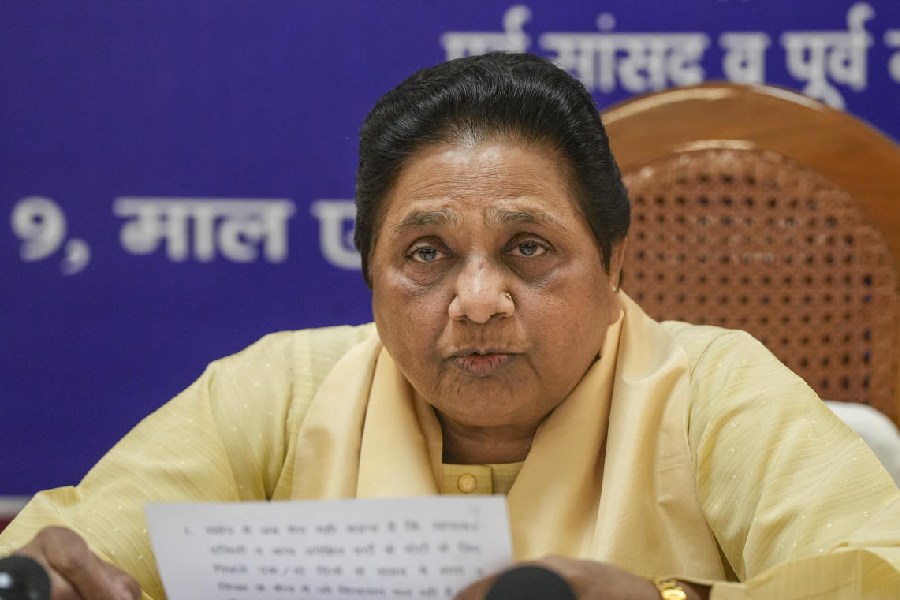The state higher secondary council has said it will not construe “political slogans” written in Plus-II answer scripts as “misconduct or malpractice” as long as they are relevant to the answer.
The clarification came in response to a petition by a group of academics to the council earlier this month, seeking the deletionof the phrase “politicalslogan” from Clause 19(r)in the recently notifiedWest Bengal Higher Secondary Examination Regulations, 2024.
The clause, which has been in existence since 2006, stipulates that a candidate “found indulging in indecorous writing or indecorous drawing or political slogan in the answer script/OMR” shall be “held guilty of misconduct or malpractice”.
It authorised the council president to “take appropriate action or refer the case to [an] Enquiry Committee” for further action.
Council president Chiranjeeb Bhattacharya sent an email in response to JU emeritus processor Sukanta Chaudhuri, who initiated the petition, saying: “Obviously, in many subjects under the humanities basket, political writing/slogans arise out of the context of the questions and, in those cases, it will not be marked under ‘misconduct & malpractice’.”
Bhattacharya explained in the email that the meaning of the word “slogan” should be taken “as a word or phrase that is easy to remember, used for example by a political party or in advertising to attract people’s attention or to suggest an idea quickly — as per Oxford English Dictionary”.
“Again, we are not at all rigid in this matter, but rather quite flexible in dealing with such cases,” says the council president’s email.
The council president wrote he had been handling the state HS examinations since 2022 and he never experienced any candidate being penalised for such an offence, like writing political slogans on answer scripts.
“So writing slogans against Central Govt. or State Govt., and differentiating between two cases does not arise. We always believe answers should be content-specific and should have relevance to the questions,” he wrote.
He clarified that these clauses have been in existence since 2006.
The debate over writing political slogans started after the petition by 31 academics raised several points like whether the term “slogan” should be taken literally. “Is any other kind of political statement, even a long discourse, not covered by this provision? More crucially, what is to be interpreted as ‘political’?” the petition asked.
The petition said plus-II students were on the verge of adulthood and might be drawn to support “widespread social movements”.
The petition said there was a possibility that they might write a slogan from such a movement intheir answer books “asa gesture”.
“In fact, many students might do so as a general campaign. If the slogan is not inherently illegal or objectionable, and the rest of the answer-book contains standard admissible material (perhaps of a high quality), will the candidate be charged with ‘misconduct or malpractice’ despite her/his merit and the absence of any inherently mischievous material in the script?” asked the petition emailed to the council president.
One of the petitioners told this newspaper what if a student was asked to write an essay on a topic like the women’s liberation movement or the state of women in society in subjects like English and Bengali andhe or she sought to contextualise it referring to the horrific incident at RG Kar Medical College and Hospital and writes slogans like ‘Reclaim the Night’ or ‘We Want Justice’.
“Will the council view this as a political slogan and punish the student?” wondered Anupam Basu, a former professor at IIT Kharagpur and former director of NIT Durgapur.
JU emeritus professor Sukanta Chaudhuri said he was satisfied with the council’s clarification.
Chaudhuri said: “The council president assured us that even if there is any complaint, the case will be considered with an open mind and it will be seen that no student is penalised for a minor infringement. I am satisfied with the reply”.
“He has stressed that the clause was a pre-existing one, which we too had mentioned in our mail. It was there in the examination regulations of 2006 and has been effective since then. He has emphasised that it is not a matter of much importance as there had not been a single complaint on that clause.”
Chaudhuri said: “Though there is no thought of revision of this clause at this point on the council’s behalf, I am satisfied that he has taken our concern seriously and has responded to assuage our doubts.”










